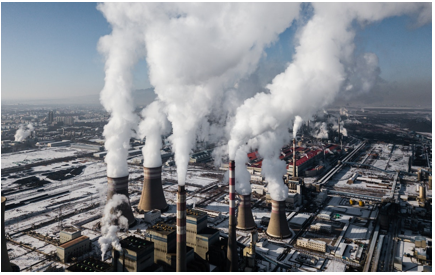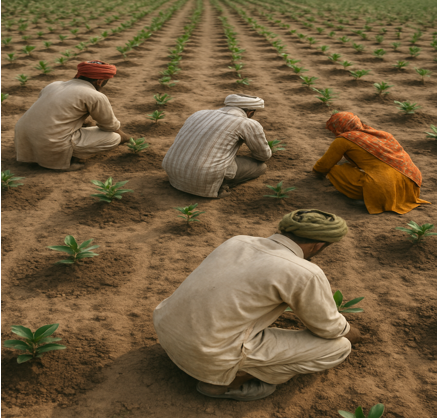INP-WealthPk
Ahmed Khan Malik
In a key step toward combating climate change and promoting environmental sustainability, the Sindh government has launched a large-scale forestation drive aimed at reducing carbon emissions across the province.

This ambitious program not only seeks to mitigate the effects of global warming but also to restore degraded ecosystems, enhance biodiversity, and provide long-term benefits to the local communities, officials told WealthPK.
The initiative, spearheaded by the Sindh Forest Department in collaboration with various environmental organizations and local stakeholders, is part of a broader national commitment to fulfill Pakistan's climate pledges under the Paris Agreement.

"The province plans to plant millions of trees over the next few years across urban and rural areas, with a special focus on mangrove forests along the coastal belt, riverine forests, and arid zones," Javed Soomro, Director of the Forest Department, said. He asserted that reforestation is one of the most effective nature-based solutions to climate change. Trees absorb carbon dioxide — a major greenhouse gas responsible for global warming — from the atmosphere and store it in their biomass.
Through this process, known as carbon sequestration, trees help reduce the concentration of CO₂ and improve air quality. In regions like Sindh, where deforestation and land degradation have significantly impacted local ecosystems, afforestation and reforestation are crucial for maintaining ecological balance, Soomro said. He said the forestation initiative will include the rehabilitation of over 100,000 hectares of degraded forest land.
In addition to traditional plantation methods, the project will adopt innovative methods such as seed ball dispersal via drones and community-led nursery programs. These efforts are expected to sequester thousands of tons of carbon annually, contributing directly to Pakistan's goal of reducing its greenhouse gas emissions by 20% by 2030. Soomro pointed out that special emphasis is also being placed on community involvement and employment generation.
Under the initiative, local residents, especially women and youth, will be trained and employed in tree planting, forest maintenance, and ecological monitoring. This not only promotes environmental stewardship but also provides economic opportunities in underserved regions. The mangrove forests of Sindh, particularly along the Indus Delta, are a key focus area due to their exceptional capacity to store carbon, which is often up to four times greater than that of terrestrial forests.
"Restoring and expanding these mangroves will not only sequester large amounts of CO₂ but also protect the coastal areas from erosion, storm surges, and rising sea levels," Soomro added. He lauded the move, terming it a crucial measure in the fight against climate change. However, he stressed the importance of long-term planning, transparency, and consistent monitoring to ensure the program's success and sustainability.
In the face of increasing global environmental challenges, Sindh's forestation initiative marks a hopeful and proactive approach. By investing in green infrastructure and ecological restoration, the province is setting a powerful example for other regions to follow, he said.
Credit: INP-WealthPk











